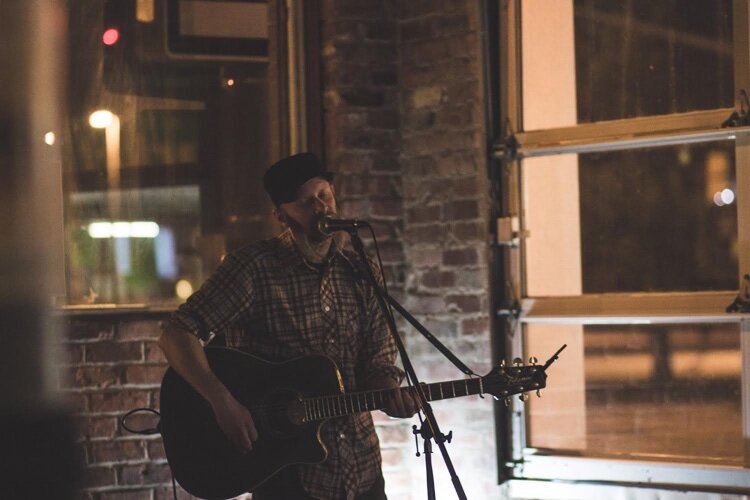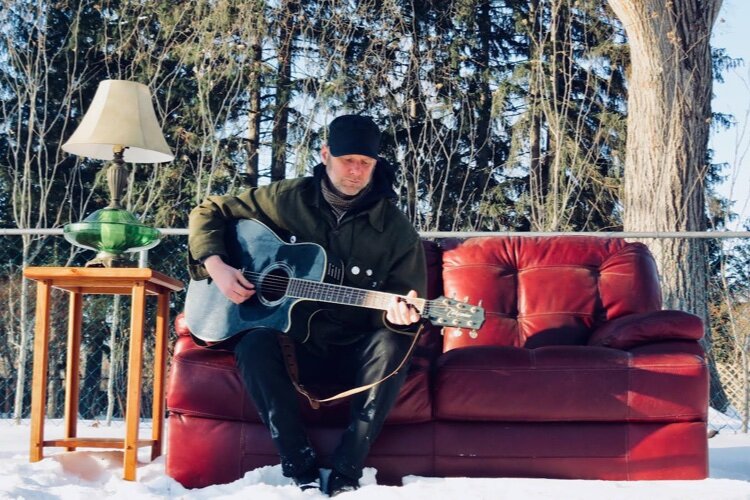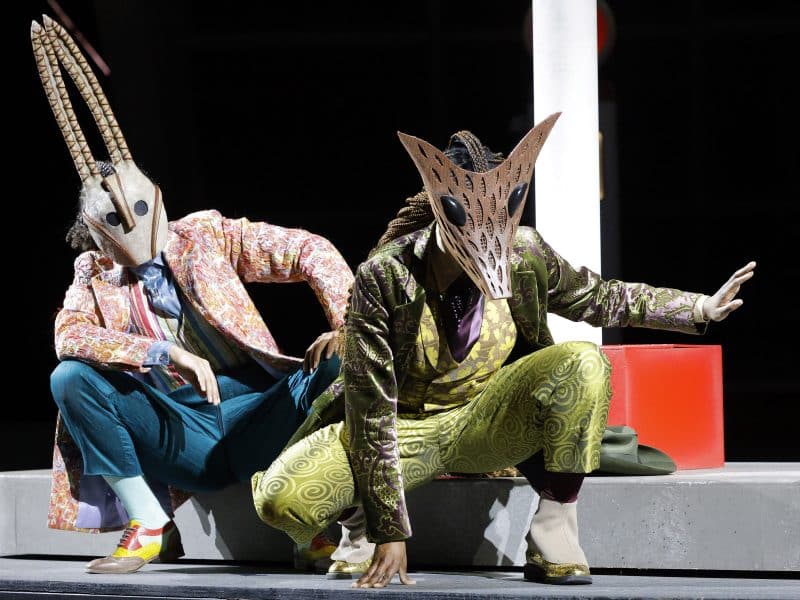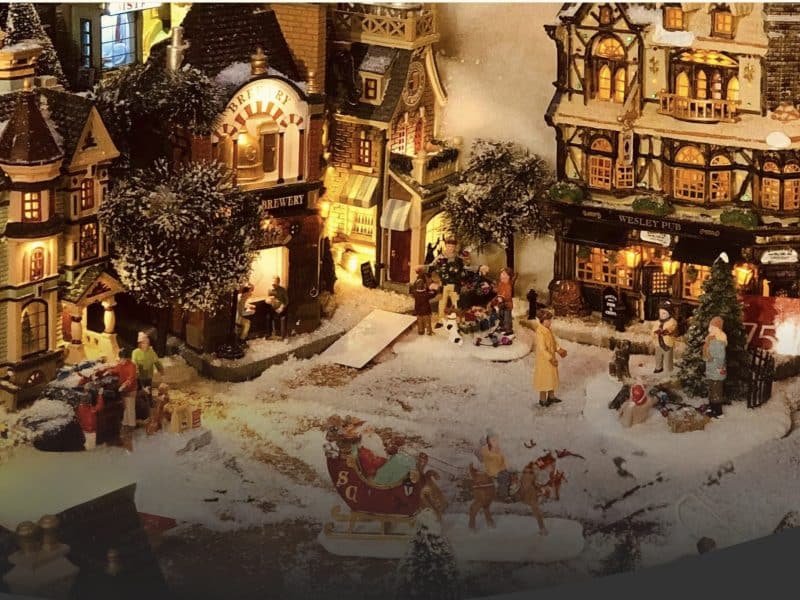Welcome to the #modeldexplorerseries, where you can follow some of Detroit's leaders and icons on Model D's Instagram and see the city through their eyes.
The Canadian-American border shut down pretty early on into the COVID-19 pandemic. It’s affected a lot of people and especially in places like Windsor and Detroit, two border towns split by one big river. For centuries now, people have traveled one way or the other to visit friends, family, and loved ones, or go out for a night on the town.
The Canadian border opened up earlier this month, easing restrictions on people wanting to travel from Michigan and into Ontario. It was recently announced, however, that everyday Canadians looking to enter the United States would have to wait a while longer; the Aug. 21 date initially set for easing border restrictions on Canadians traveling to the U.S. has been pushed back another month.
Canadian musician and Windsor resident Ron Leary has been coming to Detroit since the early 1990s, playing shows at places like the old Xhedos Cafe in Ferndale or PJ’s Lager House in Corktown. His Travelling Salesman Radio Hour, currently on hiatus, has reached Detroit from Windsor’s 99.1 CJAM-FM. He also studied the history of the border while earning his master’s in history from the University of Windsor, focusing on borderlands music and radio.
You can catch Ron Leary’s next show on Friday, Sept. 10, at the Dominion House Tavern in Windsor, Ontario. Visit www.ronleary.com for the latest updates.
As the border opened up, at least in one direction, we gave him the keys to our Instagram account as part of the Model D Explorer Series. Ron took us to some institutions of the Windsor music community, both old and new. The way he talks about Windsor-style pizza, though, has us thinking he might have to give us another tour someday, too.
We spoke with Ron Leary about Windsor, Detroit, and the relationship shared between these two incredibly unique, but forever linked, border towns.

Model D: How would you characterize the back-and-forth relationship, the sharing of music and ideas and culture between Detroit and Windsor?
Ron Leary: The connection is incredibly deep. I’m kind of an outsider; I moved to Windsor in the early 90s. But Detroit is just embedded into the community here. The families — everyone has American-Canadian relatives down here. And obviously [legendary 1970s radio station] CKLW over here, playing lots of Motown, Detroit rock and roll — Seger and all those guys would come over and play. Detroit, the music, the culture, it’s just kinda part of the fabric of Windsor life. It’s different here. It’s kind of like half Canadian-half American. It’s different than anywhere else I’ve ever been in the country.
Model D: You studied life on the Detroit-Windsor border while earning your masters from the University of Windsor, and especially in terms of music. What were some big takeaways there?
Ron: I think the most interesting thing I found was that through the two big Windsor stations here, it became a real launching point for Canadian artists into the American market. The Windsor stations, CKLW in the 70s and 89X in the 90s, they had a potential listenership of over 10 million people — and mostly American ears. Back in the 70s, Canada was only 20 million people, coast to coast. If you could break into the Detroit market through Windsor, you could really establish your career. Even if you were getting national radioplay in Canada, you might still be working crappy jobs. But the possibility to transform your career and your life through the Windsor-Detroit market made a difference.
Model D: How do you think Detroit might have benefited from that relationship over the years?
Ron: I think in very subtle ways. Some don’t recognize it as much, but because Canadian radio is mandated to play a certain percentage of Canadian music, I think people in Detroit know a lot more about Canadian music than probably most other places in the States would, even if they didn’t quite know the bands they were listening to were Canadian.
With CKLW, it was bands like the Guess Who, which they would always be playing. It would happen again in the 90s with bands like Sloan, who’s still coming down to Detroit and still packing St. Andrews every time they play. I think Detroiters and Michiganders have gotten to know a lot more Canadian music and Canadian culture because the border radio is an option and maybe a little unique compared to any other of the stations that they listen to. It’s been mutually beneficial to both the listeners and the musicians.
Model D: Someone commented on your post about CJAM — and I think it was actually our Editor at Large, Biba Adams. But she commented on your post about CJAM, saying it was one of the first radio stations to play a lot of Detroit hip hop.
Ron: That totally makes sense. CJAM is very, very conscious of the Detroit music scene. Most of the programmers, they’re all Detroit music-goers, live music-goers. And there’s a huge priority on local music. It doesn’t matter what side of the river it’s on.
There’s a White Stripes book that said there was a band out of Montreal in the 80s or something and they were just a duo — drums and guitar. And it was suggested that Jack White first heard that on Canadian radio. The only radio station in Windsor that would actually play something like that would have been CJAM. And I know Jack White grew up in Southwest, which CJAM reaches. I always wanted to get that question to Jack and see if that’s where he got some influence for his band, because it sounds like he could’ve.
Model D: Border towns have a different energy than towns in the interior. What’s the attraction for you? What pulled you to Windsor and into Detroit?
Ron: When I got here, I was kind of shocked. It was quite a different world than anywhere I’ve been in Canada. But really early on, I fell in love with Detroit and Detroit music. Any chance I had, I would go over to catch a show at a club or festival or go to Car City Records. I just really fell in love with 90s-era Detroit, really fell in love with Detroit culture. The more I learned about it, as I dug a little deeper into Detroit music, it’s just an incredible legacy. I was just in awe of the legacy of Detroit. So that’s a huge reason why I’m still here. And I love that half American-half Canadian culture. I’m really attracted to the kinds of spots where two cultures are colliding. It’s different from other places in North America.
It’s positioned in between Chicago and Toronto, so it’s a really good place for me to be a touring musician. It’s central to quite a few million people and I like to travel and sing. And I guess the other thing about Windsor is that it’s a pretty cheap place to live — or it used to be, traditionally. So for being an artist, if you had really cheap rent, you had a much better chance of only doing art. And that’s kind of happened for me here in Windsor.
Windsor is kind of like a sleepy little town, but in just 10 minutes I can be in downtown Detroit. It’s kind of the best of both worlds. I think Windsor itself, as an arts community, I think it really — I’ve been in every town of any size and I think Windsor really punches above its weight, on an artistic and creative level, and I think that has a lot to do with Detroit. You have access to world class entertainment that’s just 10 minutes away — which most places in Canada don’t have. You have to either be in Toronto, Vancouver, or Montreal. But here, we’re kind of a small town with Detroit right there. So people here have a knowledge that maybe other small towns in Canada don’t have access to.
Model D: I was reading the newspaper this morning and saw that they just extended the border closures for Canadians coming into the U.S., pushing it back into September. It’s been about a year-and-a-half since the borders closed now. What do you miss most about coming over to Detroit?
Ron: Because I do rely heavily on Detroit for my cultural needs, to not have access to that has been very, very difficult. I love going over to catch a show, somewhere like St. Andrews. That’s my dream venue to play, St. Andrews. I saw Elliot Smith there when I was 25 and I’ve always loved that place. So I miss going to concerts. And there’s a lot of restaurants I used to go to pretty regularly.
But probably the biggest thing is that I’ve met so many close friends in Detroit. Many of my closest friends are Michiganders living over in Detroit, in the area. Just through years of playing music, whether it’s my own or through my show at CJAM, I’ve just met so many cool, interesting folks and not being able to see them for basically two years, it’s been a real drag. Being cut off from the community that you’ve been so active in, that was so much a big part of your life before, I think it’s been really hard for a lot of people — I know at least for me. I just can’t wait to get up and go over and see everyone.
Model D: When you do get to come back over, what’s the first restaurant you’re going to?
Ron: I think it’s gonna be Taqueria El Rey, down on Vernor there. You know that place? I miss the tacos, the smoked chicken. It’s a small little joint, it feels good to be in there. It’ll be Mexican food for sure. That’s what I probably miss the most — really good Detroit-Mexican food.
Find Model D on Instagram at @modeldmedia. And be sure to follow Ron Leary at @lawnreary to keep up with the Windsor music scene.





